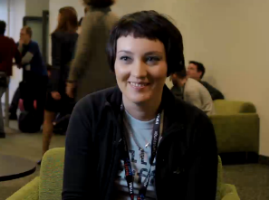InfoQ Homepage Functional Programming Content on InfoQ
-
Stephanie Weirich on Dependent Typing, Extending Haskell, Type System Research
Stephanie Weirich gives an introduction to the ideas behind dependent typing, dependent typing in Haskell, extending Haskell, and the status and future of type theory.
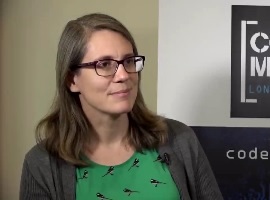
-
Amir Chaudhry on Unikernels, MirageOS, HalVM, Rump Kernels
Amir Chaudhry explains the ideas behind Unikernels, implementations like the OCaml-based MirageOS and Haskell-based HalVM, Rump Kernels for integrating with legacy code and much more.

-
Darach Ennis on the Pony Language, Actors, Concurrency
Darach Ennis talks about the actor-model language Pony, its distinguishing approaches to memory management and concurrency, how it relates to Erlang, and much more.

-
Adam Wick on Security, Formal Methods, Types, Unikernels, HaLVM, DRM
Adam Wick talks about software security, research into formal methods and randomisation as well as documentation and types to help write secure software, HalVM and other Unikernels, DRM.

-
Sylvan Clebsch on the Actor-Model Language Pony, Garbage Collection, Capabilities, Concurrency
Sylvan Clebsch introduces Pony, a language built on the actor model which combines new approaches to garbage collection and concepts like capabilities to write high performance, concurrent code.
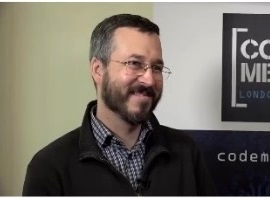
-
Mik Kersten on Current and Future ALM Trends
Mik Kersten talks about current and future trends in ALM and the support for approaches like large scale Agile, DevOps, Docker, Big Data, functional languages and the Internet of Things.

-
Chris Richardson on Functional Programming in Scala and Java, Event Sourcing
Chris Richardson explains the appeal of Scala, functional programming in Java and other languages, the basics of Event Sourcing, and his perspective on the state of the Java ecosystem.

-
Sadek Drobi on Architecture, Scala
Sadek Drobi explains ways to simplify software architectures by reframing the problem and requirements. Also: Scala, Prismic.io, and much more.
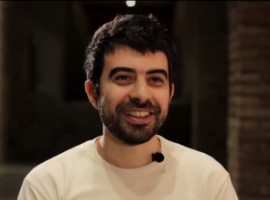
-
Anil Madhavapeddy on Unikernels and OCaml
Anil Madhavapeddy describes why unikernels have important security properties, how they can be built, and how they can be utilised alongside of Docker containers. He stresses the importance of type safe languages, particularly OCaml, which was used for the Mirage OS project, but also touches upon Go and Rust.

-
Mathias Brandewinder on F# for Data Science
Mathias Brandewinder explains why F# is well suited for data science: the REPL, type providers for seamless data access, functional programming concepts and much more.

-
Yan Cui on Graph Databases for Modeling Game Economies, Actors and DSLs with F#
Yan Cui talks about the advantages of using F# to build DSLs and using the actor model. Also: why and how to use graph databases to model (game) economies.
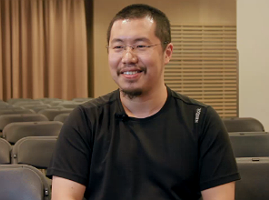
-
Natalia Chechina on Scaling Distributed Erlang with SD Erlang
Natalia Chechina explains the challenges of scaling distributed Erlang beyond a certain number of systems and how SD Erlang helps to overcome those problems.
